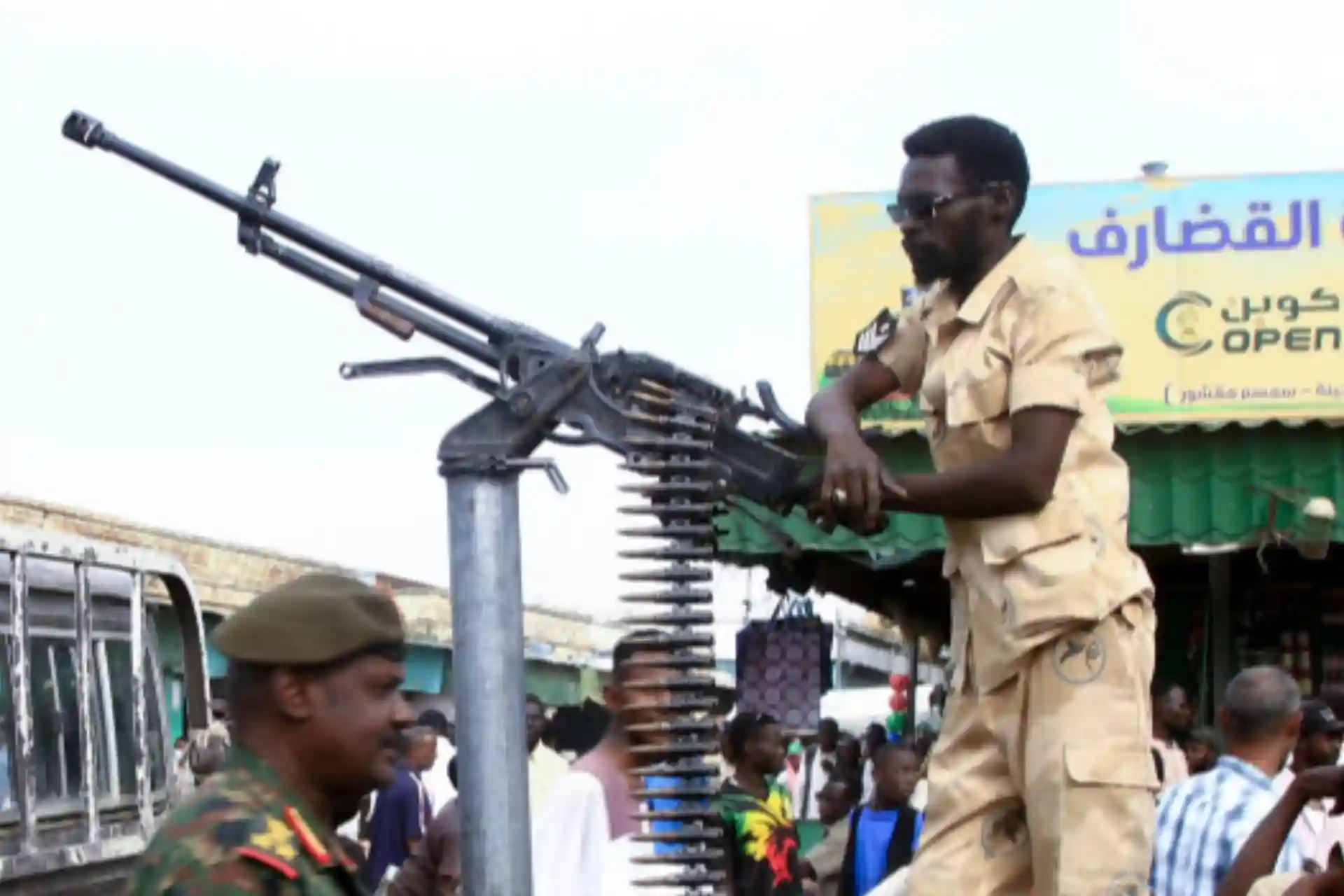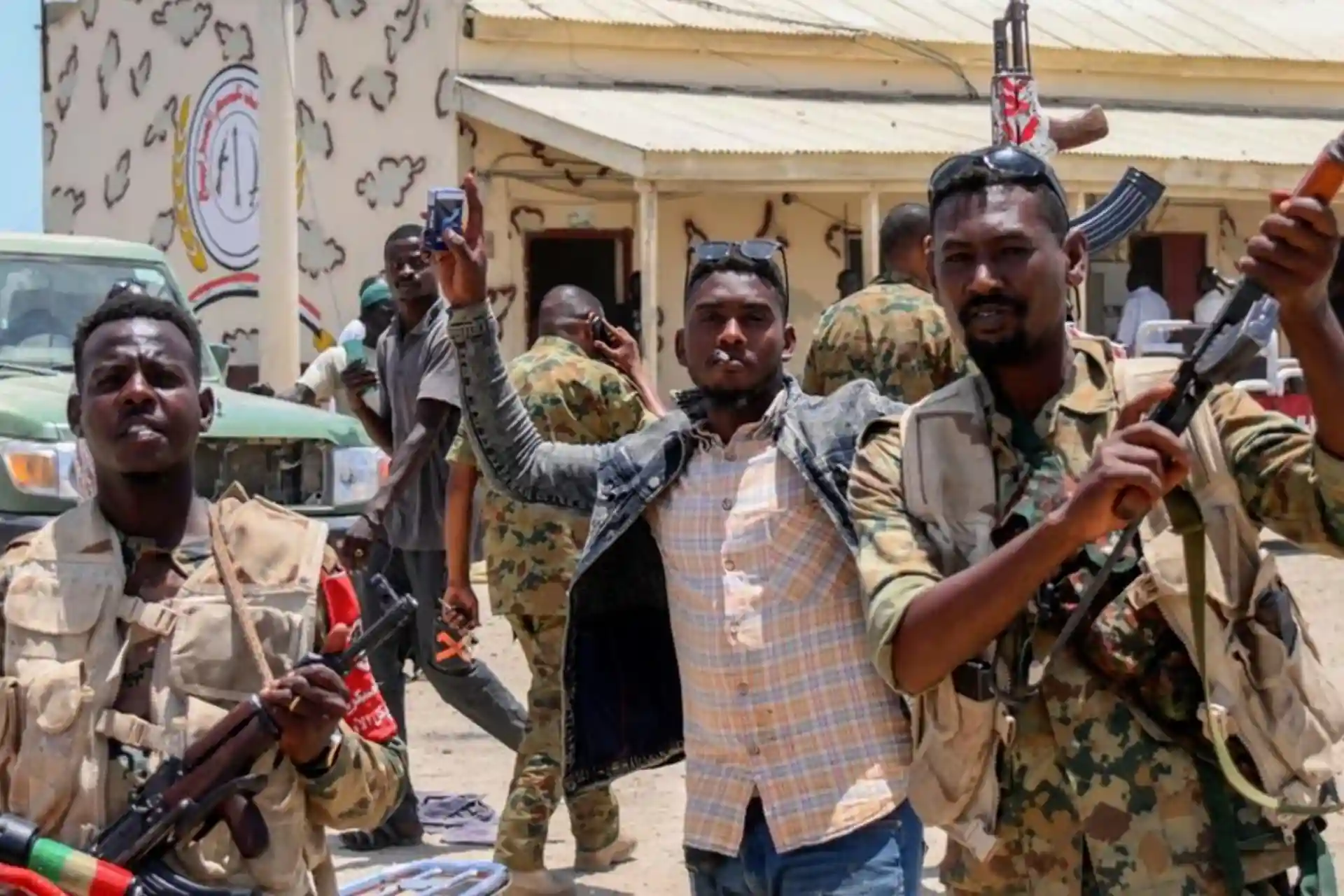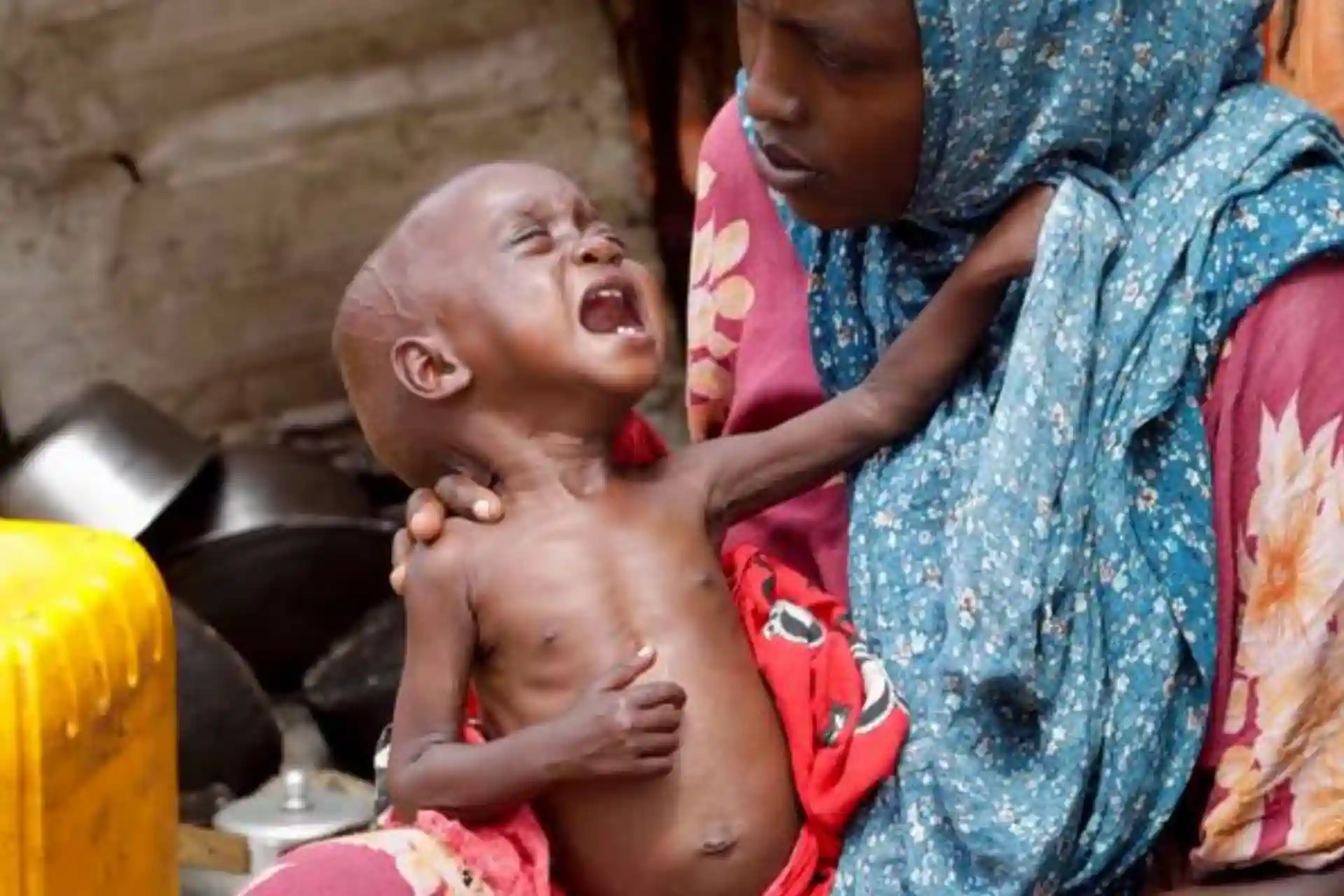Sudan's civil war has become a 'forgotten crisis' - Bloomberg
While the world's eyes are on Gaza and Ukraine, Sudan, a country of 50 million people, has been in a year of civil war, with 15,000 civilians killed, 25 million starving and 11 million displaced. However, foreign donors provide 1,000 times less aid to Khartoum than to Kyiv.
Sudanese security forces patrol a commercial area in Gedaref, eastern Sudan, on April 3, 2024, during ongoing clashes between the army and paramilitary forces.
A year after Sudan's civil war broke out, the brutal conflict has torn apart the North African nation's social fabric and fueled the world's largest refugee crisis, as well as the threat of a major famine. Nevertheless, this problem is almost forgotten in global conversations in the context of conflicts in Gaza and Ukraine. International donors provided almost 1000 times more aid to Kyiv than to Khartoum; foreign legislatures routinely debate support for Israel and the suffering of innocent Palestinians. Few people are talking about the 50 million Sudanese citizens who are caught between the brutal rebel militias who contributed to the genocide in Darfur and the corrupt military linked to elements of the former regime .
The war began on April 15 of last year with a clash between the Rapid Action Forces and the Sudanese army . Since then, they have been fighting a brutal war for control of the mineral- rich country . As a result of these conflicts, about 15,000 people have died, the country's capital has been destroyed, and war crimes are being committed non-stop.
Half of Sudan's population is in need of food aid, 11 million people have been displaced, and foreign powers, including the United Arab Emirates and Iran, have joined the conflict that has destabilized the region, raising the prospect of widespread famine. "When the war started, everyone thought it wouldn't last long," said Mohaned al-Noor, a UK-based lawyer and pro-democracy member of the Sudan Trade Union. "Unfortunately, now it feels like the war will never end."
Compared to other major conflicts, the difference in treatment of Sudan is particularly stark in the area of aid. International donors, mainly the West, have given Ukraine $132 billion in non-military aid since the war began, according to the Kiel Institute for World Economics. This cannot be compared to the total of $1.5 billion in humanitarian aid pledged by donors to Sudan last June. At the same time, the UN was able to raise 5 percent of the $2.7 billion in aid needed for this year.
While Western powers have turned their attention elsewhere , Middle Eastern countries are playing a more active role in Sudan. The United Arab Emirates is one of the main backers of the Rapid Action Force, providing it with weapons and funding , according to a leaked UN report. And the UAE denies any connection. Meanwhile, Iran is supplying the military with combat drones, according to Western diplomats.
The situation on the ground is aggravated by Sudan's complex civil system and rebel forces getting complicated : well -armed militants When the groups go to the side of the enemy, Muslims are joining the ranks of the army, and ordinary citizens are also taking up arms .
Such an unstable situation , even if an agreement on a ceasefire was reached between the head of the army, General Abdulfattah al-Burkhan, and the head of the Rapid Action Forces, Mohammad Hamdan Dagalo, that is unlikely, as mediation efforts by the UAE, Saudi Arabia and other countries have failed, raising fears that hostilities will continue unabated.
While Dagalo portrays himself as a noble statesman on his travels abroad, his troops at home are accused of war crimes, including rape, attacks on civilians and looting. The US accuses the army of war crimes.
Last month, World Food Program Executive Director Cindy McCain called the war in Sudan a "forgotten crisis," a sentiment echoed by U.S. Ambassador to the U.N. Linda Thomas-Greenfield. "There's not enough food there, we don't have access . Our funding options just don't match - we don't have enough money," he said.
Source: Bloomberg



